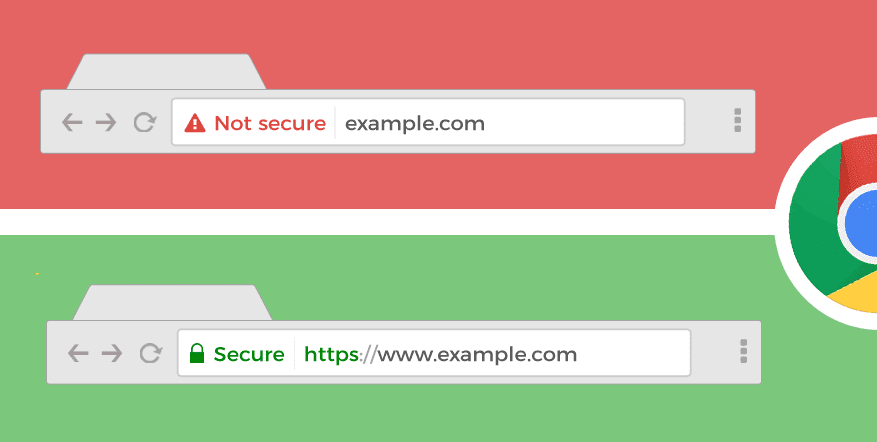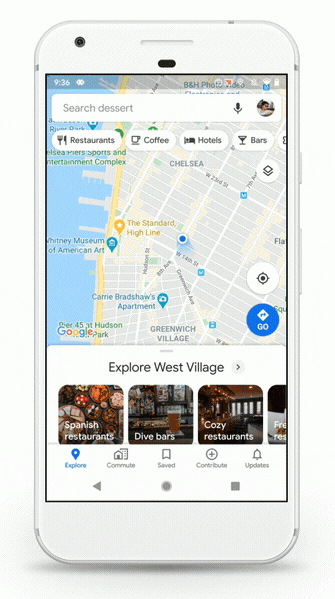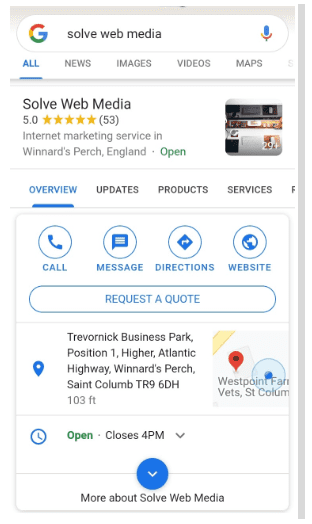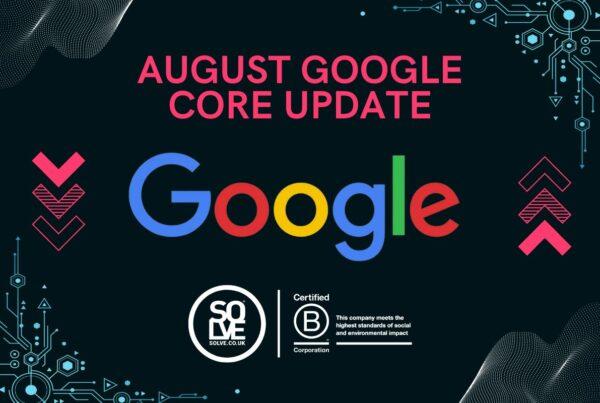
From cuts in security certificates to celebrating 15 years of Maps – there’s been a lot happening in SEO-land this month. Here’s our roundup of the top stories…
Safari to reject security certificates valid for 13+ months
Apple announced last week that they’ll start rejecting HTTPS certificates on Safari that are valid for more than 13 months. From 1st September 2020, Apple won’t allow certificates with more than 398 days of validity, and visitors will receive a privacy warning when visiting such websites. Here at Solve, we offer 6-monthly SSL certificates as part of our web hosting service, so if we host your site, you can relax – we’ve got you covered!
What is an HTTPS certificate?
HTTPS certificates (or SSL certificates) ensure that the connection to your website is secure. They make sure all data passed between your web server and the browser remain private, and they are an essential part of today’s digital marketplace. Find out more about HTTPS and security certificates on our blog.
Google algorithm update?
Earlier this month, lots of SEOs were reporting fluctuations in rankings. Google hasn’t confirmed an algorithm update, and when challenged by the SEO community, they simply reiterated that they do updates all the time. So from this, we can conclude that, if there was an update, it was a run-of-the-mill tweak like Google performs multiple times a year and not a major change like the January 2020 Core Update.
Source: Google
Google Maps celebrates 15 years
Google celebrated 15 years of Maps this month. They marked the occasion by launching a new colourful logo and map pin icon (above). They also introduced some interesting new tabs and features:
- A new Explore tab gives you information, ratings and reviews of around 200 million places worldwide.
- A Commute tab allows you to get real-time traffic updates, travel times and suggested routes.
- With the addition of a new Saved tab, you can view all your saved spots in one place, organise plans and share recommendations.
- A new Contribute tab has been added so you can easily share your local knowledge with the world.
- An Updates tab now provides you with a feed of trending, must-see spots from local experts and you can even chat directly with businesses.
Here’s a snapshot of what the new interface looks like:
Source: SEO Roundtable
Google also confirmed what they’ve been doing to clean up Maps. In 2019 alone, they removed 75 million reviews that violated policy and 4 million fake profiles. They also deleted 10 million photos and 3 million videos that breached content policies.
Google My Business – bugs, cleanups and controversy
Google My Business (GMB) has been talked about a lot this month within the SEO community – for various reasons.
First, GMB had a bug and was rejecting posts on mass for unclear reasons, which lead to multiple complaints. Google swiftly issued a fix and posts were being republished.
GMB also updated this month allowing you to upload multiple images or videos per post. This gives you even more opportunities to engage your audience at a local level and drive traffic back to your site.
Google also appeared to be tidying up GMB. They’ve been informing people that unpublished business profiles will be deleted within 30 days, prompting businesses to claim their profiles in listings and asking people to verify accounts that haven’t been logged into in a while. They also now appear to be notifying owners when reviews are deleted from profiles.
There was also some controversy this month about whether keywords on GMB profiles influence ranking or not. Google added a comment into their local search help document discussing how keywords can help improve local ranking, but many SEOs didn’t agree with this. In the end, the text referring to keywords was removed from the guide by Google. They did state on Twitter that, although including keywords wouldn’t guarantee better rankings, it could, depending on other factors.
So as SEO specialists, what’s our opinion? Well, having RELEVANT keywords on your GMB profile demonstrates what your business is about, helping users find more relevant results and providing a better user experience. This, in turn, is good for SEO. So on the whole, it can’t hurt to include keyphrases, providing they’re applicable to your business and used naturally.
New BERT for Bing
Microsoft announced that they will be launching Turing Natural Language Generation (T-NLG) soon. Microsoft claims that T-NLG outperforms other deep language learning models like BERT, covering 17 billion language parameters. They state that as well as completing unfinished sentences, this new model can generate direct answers to questions and pull out abstract summaries of input documents. On their blog, Microsoft gives the following example to show how T-NLG will be able to pull a direct answer rather than simply displaying the relevant paragraph:
| Question | Who was Jason Mraz engaged to? |
| Passage | Mraz was engaged to singer/songwriter and long-time close friend Tristan Prettyman on Christmas Eve 2010; they broke off the engagement six months later. |
| “Direct” Answer | Jason Mraz was engaged to Tristan Prettyman. |
Source: Microsoft Blog
Clever stuff!
Stay SEO-savvy
The search-scape is constantly evolving. Keep up to date with all the latest developments by subscribing to the Solve blog today. As SEO specialists, we always keep our finger on the pulse of market trends, changes and more, and we love to share our findings and expertise – don’t miss out!
And if you want to know more about us, our proven SEO or our high-performance web design, get in touch today.








